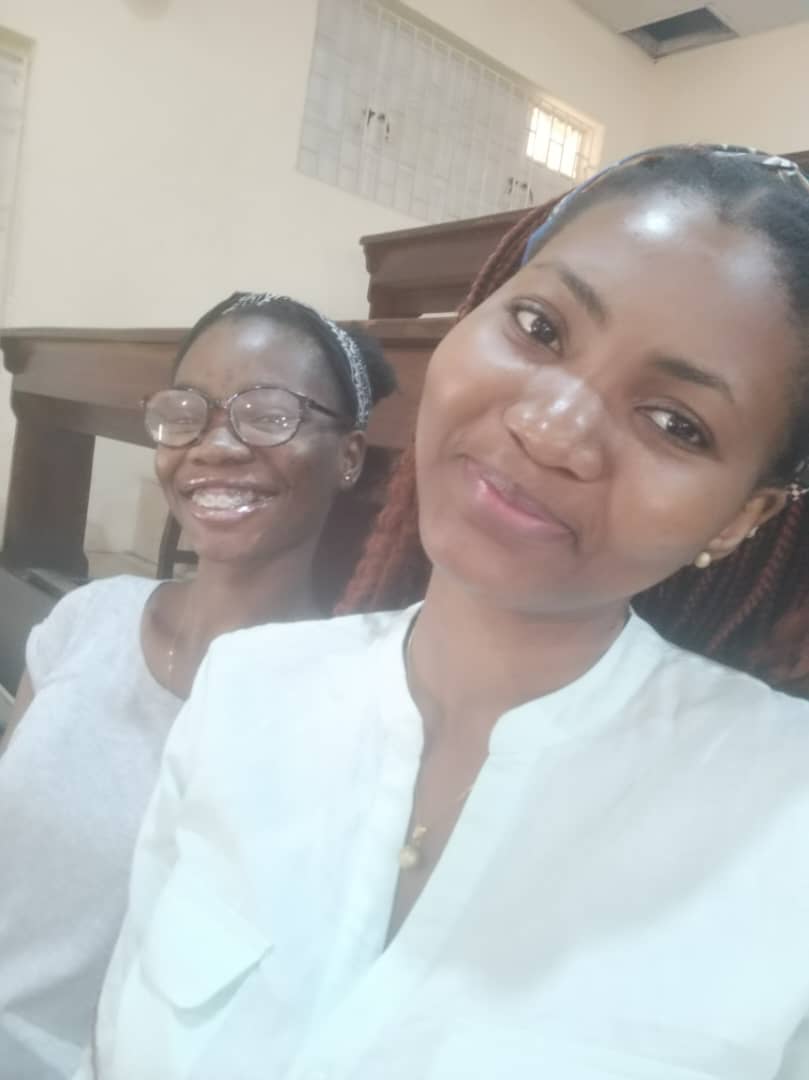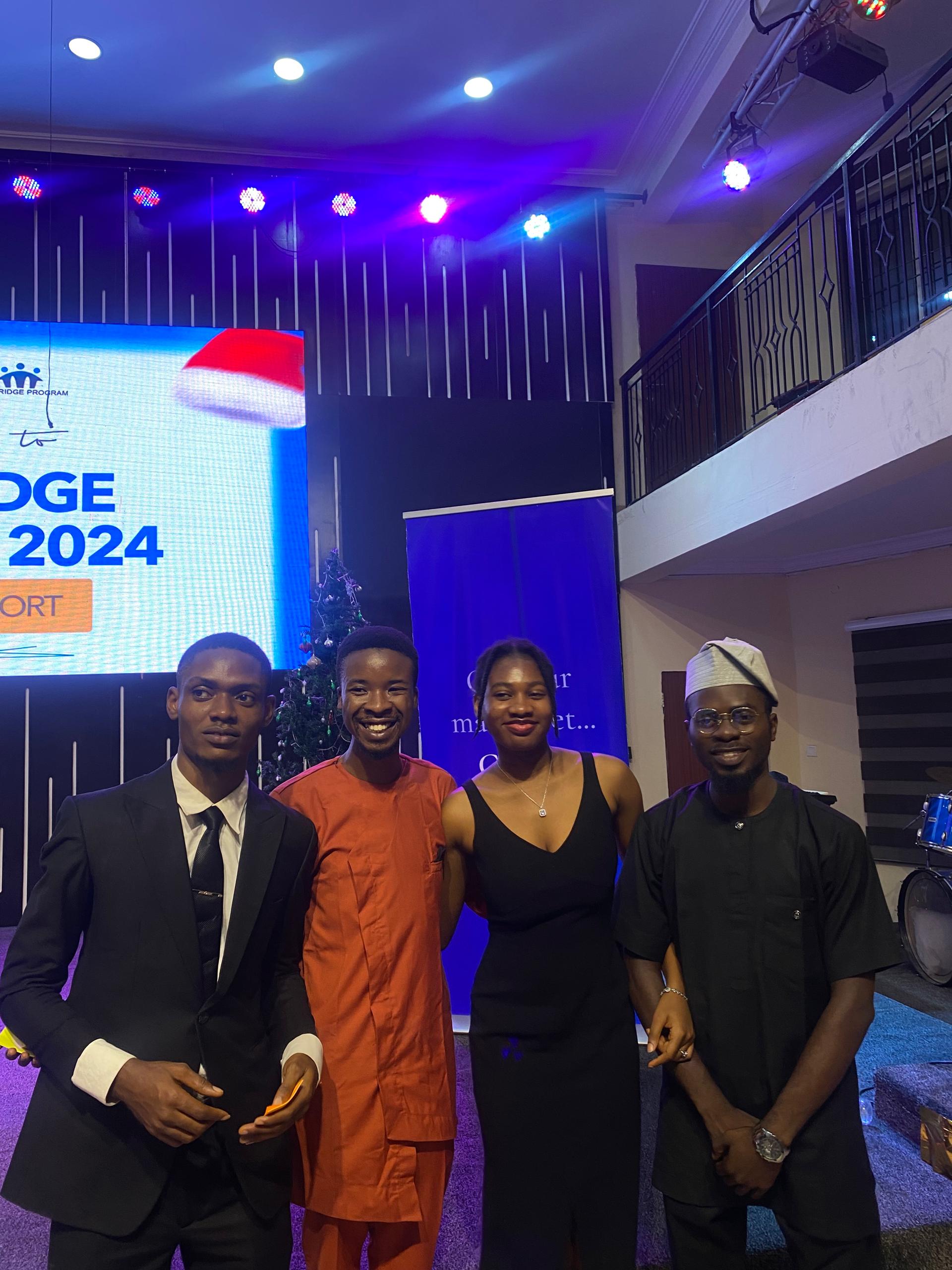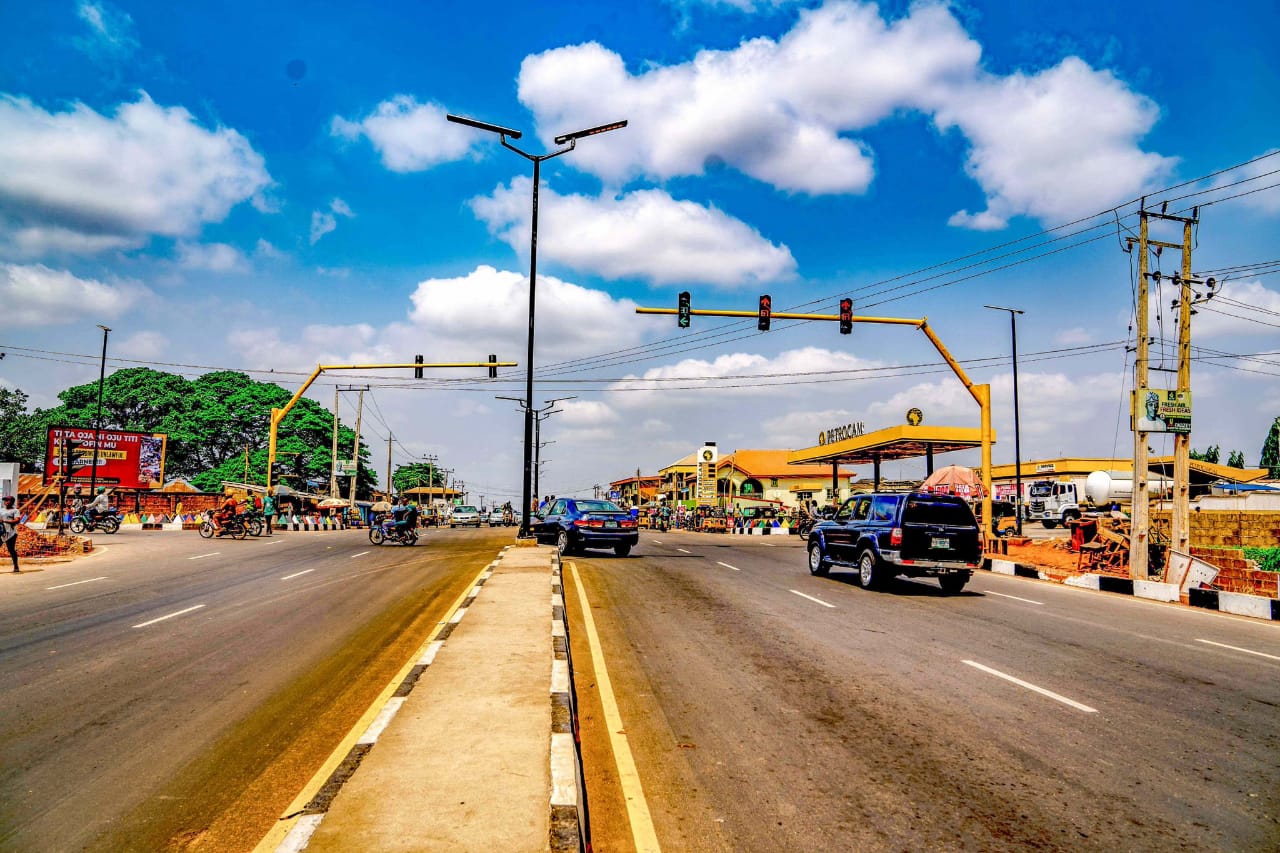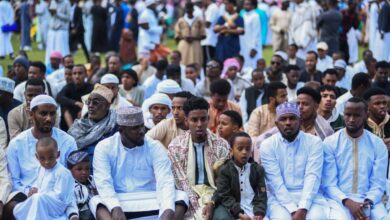INTERVIEW : The Uniqueness of Our Pursuits for Excellence (2)
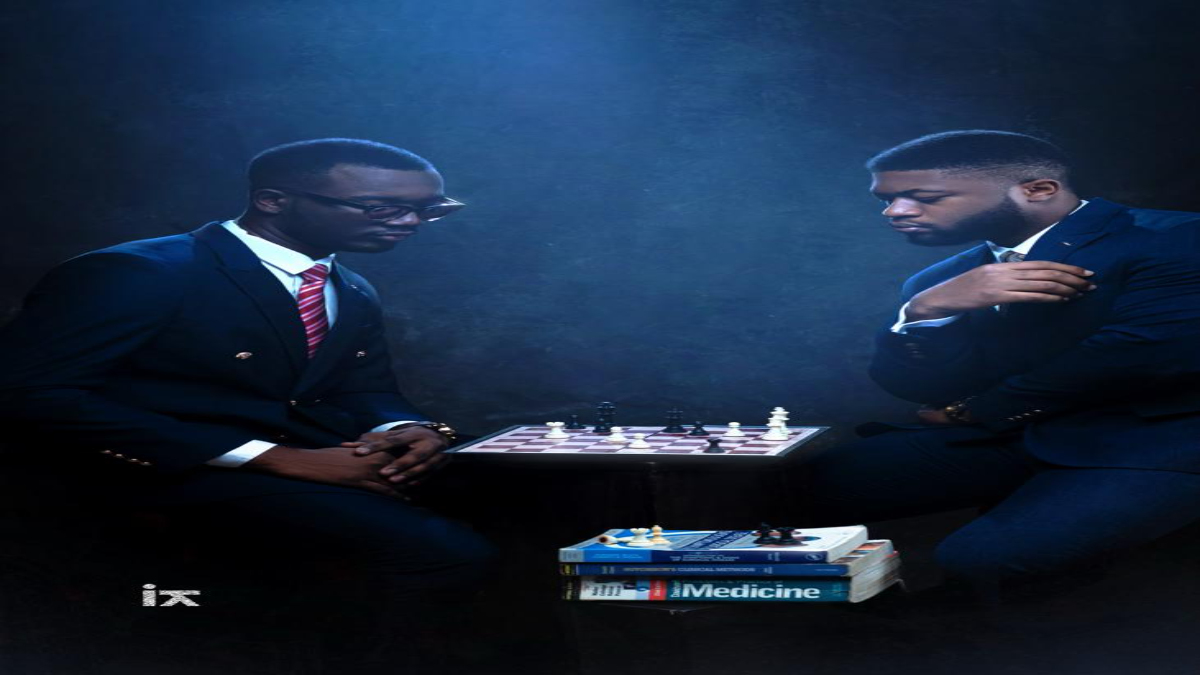
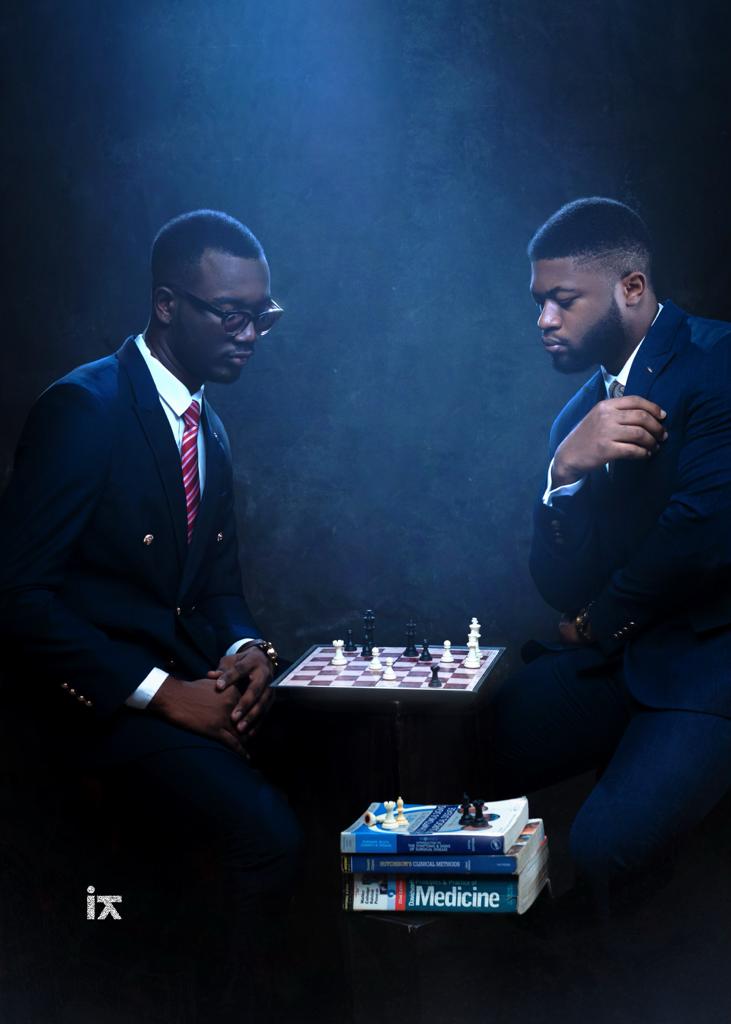
During the recent induction of the 2023 class of doctors at the College of Medicine, Ibadan, history was made. For the first time in the institution’s storied existence, two remarkable individuals shared the honour of being named valedictorians. These two exceptional doctors, Dr. Efosa Iyawe and Dr. Kelechi Ughagwu, have travelled a similar path, an academic journey filled with shared memories, emotions, and accomplishments.
In his captivating valedictorian speech, Dr. Efosa Iyawe poetically likened their connection to that of craniopagus twins, conjoined at the head, seemingly inseparable. He posed a thought-provoking question to the audience: “In what part of the brain are we joined?” His inquiry delved into the realms of neuroanatomy, speculating whether their connection resided in the Hippocampus, where cherished memories of their time in Tedder Hall at the University of Ibadan were etched. Or perhaps in the Amygdala, where shared emotions and identical scores in post-UTME and distinctions in medical school formed a deep bond.
Dr. Iyawe’s exploration continued, suggesting that it might be the Angular Gyrus, where they studied together in the same tutorial group, or the Cerebellum, where they mastered the art of balancing academic pursuits with vibrant social lives. And yet, their connection may well reside in the Broca’s area, the seat of speech and expression, as they both stood before their peers, delivering the valedictorian address—a testament to their shared excellence.
Today, we embark on an insightful journey to explore what makes the co-valedictorians unique, and to uncover the aspects where they differ despite their profound similarities. We seek to unravel the intriguing question posed by Dr. Iyawe during his valedictory address: Where aren’t they joined? Through this interview, we delve into the distinct experiences, aspirations, and perspectives that shape the remarkable individuals, Dr. Efosa Iyawe and Dr. Kelechi Ughagwu.
Congratulations on completing your medical studies. You wrote your final Medical board exam a couple of weeks ago and you’ve been free since then. How has that been for you? What have you been up to?
Efosa: Out of school is into life. Some of us are still resting, some are looking for funding for exams. Some are doing their final year clearance, some are playing, recuperating, and planning postgraduate. Personally, I am doing all of it.
Kelechi: Most of us are looking for house job options, some are shadowing consultants, and collaborating with consultants on research plans. I’ve been hanging out with friends because this is the last time that we are all going to be together at once and looking out for postgraduate opportunities.
What inspired you to pursue a career in medicine, and how has that motivation evolved throughout your journey in medical school?
Kelechi: I was interested in how living organisms worked. I’ve always loved biology. I sometimes marvel at the way cells are arranged in the eyes and ears. I wanted to know how all these got together to function as one, and how living organisms function, down to the nuclear level.
Efosa: I was smiling while Kelechi talked. His is quite a logical reason for coming into medicine. In secondary school, I was a math and physics guy so I was looking towards engineering. But this changed when I was admitted to the hospital and I was supposed to have surgery. I loved the way the doctors dressed and carried themselves. I thought they were badass. I came in for the prestige and I loved it, some come for prestige and end up hating it. A predictor is if you love people, you’ll make a good doctor.
As graduates with distinctions, what were some of the key factors or strategies that you believe contributed to your academic success?
Kelechi: For me, I’ll say it was mentorship, my zeal for excellence and picking up cues from the environment. I always ask my seniors for advice, this is something I do before I move into a new class in medical school or a new posting. Mentorship and guidance have been key contributors to my success in medical school. My zeal for excellence, of course, I always do my best for any course or exam. (Apart from biochemistry, God I hated that course. *Laughs* A motivator in the 100 level was scholarships, I wasn’t from a very wealthy background, so I knew I had to get a scholarship to live a relatively easier life. That habit built me to aim for the best. After my first and second anatomy CA in preclinical school, I saw that my scores were on the way so I started aiming for a distinction. Picking up cues from my environment, I observe my lecturers and classmates. I try to figure out possible questions that a lecturer might ask from what he has taught us. I also try to make sure that I know what everyone knows then I build up on it. You need to know what everyone knows and then build up on it.
Efosa: Learning is an art. When Kelechi said he didn’t like Biochemistry, I wondered how someone who loved cells didn’t like biochemistry. *Laughs* Sometimes it’s not just what you like, a lot of things come into play. Some of these things, we can’t change. But there are some that we can change. Mentorship helps with this. Past questions also help, they inform and guide you. I thought I would be boxed up by using past questions when I joined preclinical school but it wasn’t the case. Getting a learning strategy that works for you is also one of the things that will really help. The other things I would have added have been mentioned by Kelechi.
“… I also try to make sure that I know what everyone knows then I build up on it. You need to know what everyone knows and then build upon it...”
How did you balance academic demands with extracurricular activities or personal life during medical school?
Efosa: Proper time management comes with organization. I never forget that the primary objective is to study. I used to make to-do lists for what I have to do each day and I just go ahead with it.
Kelechi: I made use of to-do lists too. For the to-do lists, I had a WhatsApp page for just my messages. I list out my activities and send the things I had to do to the page. I also learned to prioritize them. When I know I am busy and do not have the time to sit down to study, I study on the go. The opportunity to do this presents itself during clinic or whenever I’m not actively involved.
What were some of the most funny experiences or moments during your time in medical school?
Efosa: I have spent close to eight years with these guys so there are countless memorable experiences. We were in orthopaedics posting and there was this guy who always came late. He came late again and the lecturer did not allow him to enter. He was locked outside, someone else now texted him to come inside and beg. He came inside and begged. The consultant asked why he entered and he apologized and told the consultant that someone else texted him to come inside. Both the texter and the latecomer were asked to leave the class.
Medical school often requires strong teamwork and communication skills. Can you share an instance you have had to work or relate closely with each other?
Kelechi: We’ve been to quizzes together, we are currently roommates. I moved back to ABH for my final year and I asked Efosa if there was room in his place. He said yes and that was it.
Efosa: Many people are always surprised when they find out that we are roommates, maybe they expect us to be some sort of rivals. But that’s the opposite. We’ve been doing a lot more together during this final year.
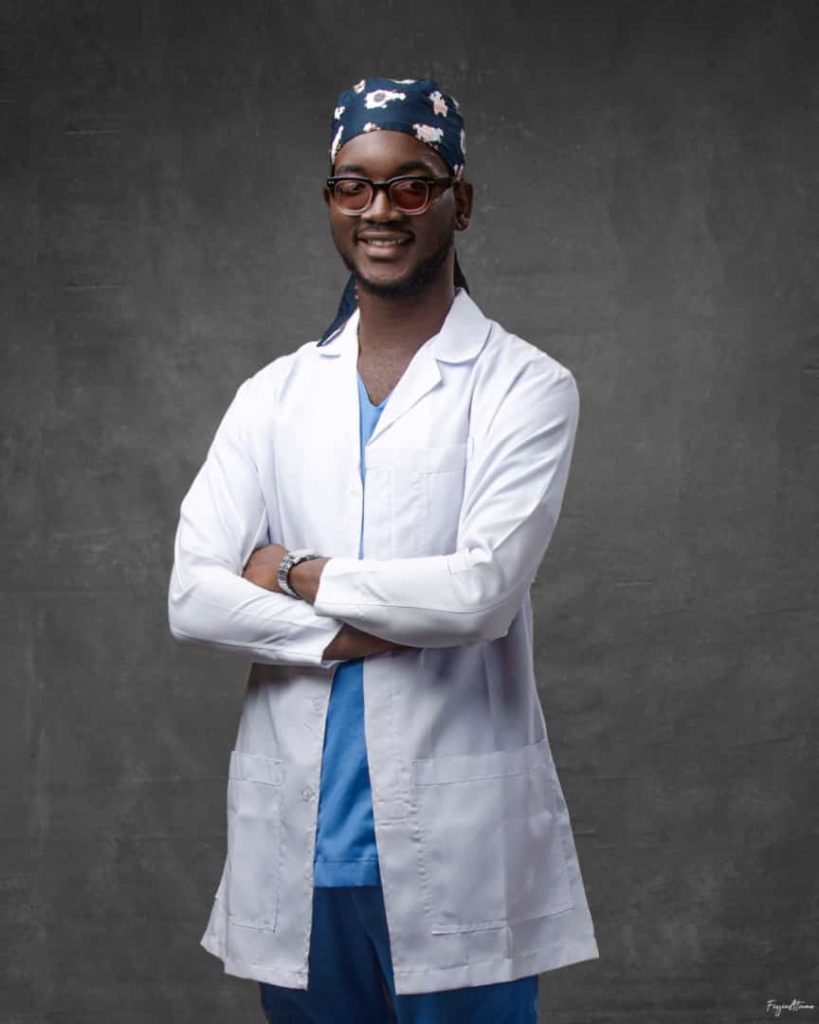
“…Many people are always surprised when they find out that we are roommates, maybe they expect us to be some sort of rivals. But that’s the opposite…”
During your clinical rotations or practical experiences, was there a particular patient interaction or case that left a lasting impact on you? If so, how did it influence your approach to medicine?
Kelechi: Mine is a sad experience. I had a patient in ENT, she was quite old. She had a benign tumour on her parotid gland. The surgery was successful. The incident that took her life was a wound dressing. An artery was cut while we were dressing her wound the next day and we lost her. I was part of the CPR team and I was drenched in sweat trying to help. I can’t forget that day. I try to keep the incident out of my mind.
Efosa: There was a time when I was in psychiatry when I met a patient who had PTSD, OCD and episodes of panic attacks and this was due to multiple accounts of rape. It was touching because I could just see the effects of what people would do not minding the effect or what happens to recipients of such acts. Seeing her have to struggle with that is something I’ll never forget.
Medical school can be challenging. Can you share a particularly difficult moment or obstacle you faced during your studies and how you overcame it?
Efosa: One of them would be writing essays. The essays we had to write were different from what I was used to. Being able to organize my thoughts into a well-written essay was what I found quite difficult. Speaking with seniors, they emphasized the need to have good outlines, all-encompassing outlines. The importance of good outlines in essay writing is something that will follow one through medical school.
Kelechi: OSCE has tormented me in this school *laughs*. The reason why it has affected me is because I got below average on my M1 test. I’ve had this phobia of OSCEs since then. I practised OSCE for close to a month for part 4 to overcome it.
“… The process of aiming and striving for excellence is what matters. It shapes you, it builds you, it makes you a better person. It will be much better than being just mediocre. Even if there’s no evidence, you have your evidence: just give your all.…”
What advice would you give to current medical students who aim to excel academically while maintaining a healthy work-life balance?
Efosa: Fear of missing out when people are joining many organizations is something that one will experience. To counter this, one has to identify what one’s interests are and why one wants to join the organization. Focus on the ones that identify with your interests and do it. Do not join too much.
Kelechi: If you join any organization, make sure that you grow in it, this means serving as an executive member. It’s also important to look for organizations that’ll have an impact on your career, do not join randomly. Consider your time too, for example, joining a literary and debating society will consume a lot of time so you need to plan ahead of time, before JAWWAR for L & D. That means reading ahead, during the time that you’re free so you can devote your time to Jaw war when it starts.
We understand that during your stay in Medical school, you met a lot of tutors and lecturers. Who will you say has been the most impactful to you?
Efosa: Dr. Ogah is a teacher, a mentor and a father. He is someone who will continue to drag you along even when you are feeling tired. He pushed me to apply for things that I normally wouldn’t know about. It’s also evident in the way he treats his colleagues. He’s a very selfless man and he’s worthy of emulation.
Kelechi: Dr Bello. We were assigned to mentors during my O & G 1 posting. He took a special interest in my partner and me. Since then, it has been a wonderful journey. He has also involved us in his research projects. He took us to see Prof Adewole as his mentee.
Medical school can be emotionally demanding. How did you manage stress and take care of your mental well-being during your studies?
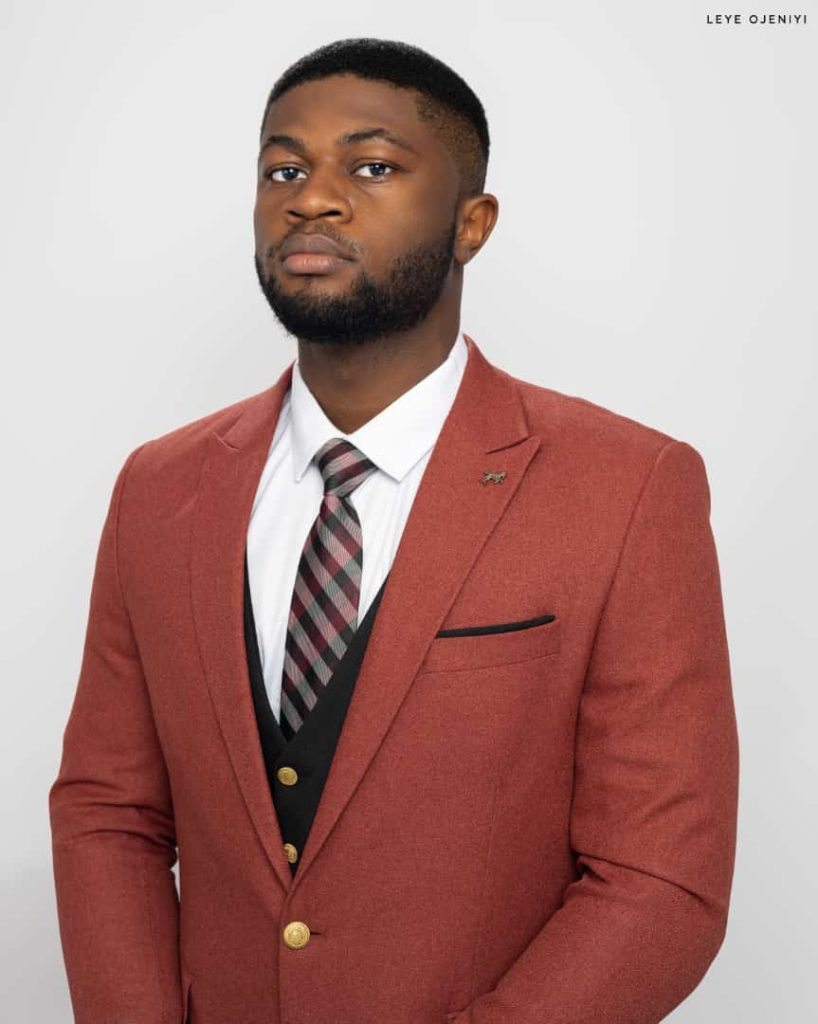
Kelechi: My mental health has always been a top priority for me. Staying alone outside the school in the 200 level was a memorable one. I used to trek from Waters to ARR just to relate with people. There are a lot of stressors here in clinical school, I play volleyball to destress, and I go to choir rehearsals too. Talking to friends and having spontaneous hangouts also helped to keep me sane. There are days when I just take a break from everything and I just relax, eat and watch movies throughout the day.
Efosa: I’m surprised that Kelechi did not mention having a significant other (laughs) but I digress. For me, I was blessed with friends who were so interesting. I developed a routine that helped with go about my day easily. Participating in extracurricular activities and joining volunteer groups was also one of the things I did to make friends and relax. There are times that one would need to fall back on the friends one had created through engaging in all these things. Believe in yourself because times will come when you’ll feel like you do not know anything. Do not let words get to you.

Medical education is continuously evolving. Are there any changes or improvements you’d like to see in medical school curricula, especially in COMUI?
Efosa: For Ibadan medicine, I believe there should be an opportunity to get a degree with our MBBS degree. They do it in BOWEN. I think we have the program here in COMUI too but no one does it. We should be able to finish with BSc physiology (or biochemistry) and also the MBBS degree. There’s also the issue of core lectures. Where you’re in one posting you’re having lectures in another posting. Many of us are not happy with it, I think it should be scrapped. I also think such lectures should be done during their postings.
Kelechi: We spend too little time doing pathology and pharmacology. Compared to other schools where they spend close to 8 months, we spend just 4 months. I’ll implore the college to dedicate more time to them as they are the basis of medicine. Also, I think the consultants should explain the principles, and methods before or after surgeries. This will help students to know what is being done. The call lectures too, 90% of our class would want it to be scrapped.
The Nigerian healthcare industry faces various issues, such as disparities in healthcare access and cost. What are some of the ways you hope to contribute to addressing these challenges in your careers?
Efosa: Making a change requires a concerted effort. One way to do that is to improve the government institution and this will be achieved by getting more funding. We could go over there(outside the country) get some training, come back and pass it on. We could also advocate for more funding in Nigeria to ensure that many of the government hospitals are adequately provided for.
Kelechi: Impact can be made by getting in touch with people in power positions to create policies that help. Insurance schemes will go a long way in helping. Even if I’m not in Nigeria, I can advocate from afar.
Can you discuss any medical conference, or medical outreach experience that broadened your understanding of healthcare disparities?
Efosa: No one in particular. The ones I’ve been to have made me realise that there is a mirage. We believe that people know the basics of healthcare. But when we go into the communities we realize that it’s not so, people don’t know the dangers of having high blood sugar or high BMI. Even people who are seemingly educated. Going for outreaches just exposes you to things that you would not usually see in a large teaching hospital like UCH.
Kelechi: One that stood out for me is the outreach organized by a politician in Ibadan. We did the usual, checked the vitals of the patients, checked their blood pressure and checked their Body Mass Index. When we tell them that they are healthy, they ask questions like “Do you have vitamin C?”. They believe that they need a drug or a test. If you do not do this, they’d feel like they’ve not been treated. This is why doctors sometimes give placebo treatments. I also realized that sometimes people with certain disease conditions that are left untreated are that way because they don’t know how to go about getting treatment or they just can’t afford it. During one of the outreaches organized by FECAMDS, I met a lady with a condition and she has been keeping me abreast of her treatment routine. Sometimes these people just need guidance.
I believe that you may have settled on a speciality in medicine. Have you? If you have, what factors influenced your decision and what are your aspirations for the future in your chosen specialty?
Efosa: I’m looking to have a postgraduate degree, and residency, then work as a consultant in pharmaceutical companies or medical device companies. My mind is still very open but this is where I am now.
Kelechi: Right now, residency is on my mind. If I do get the opportunity to get a full-ride scholarship, I’ll go for it. I’ve always had an interest in biomedical engineering so it’ll be nice to do a masters in it. I also see myself combining business with medicine. I don’t see how that’ll play out but it’s something that I’ll love to do.
As you transition from medical school to the next phase of your career, what are some of the challenges you anticipate, and how do you plan to tackle them?
Efosa: I anticipate having to adapt to the doctor’s lifestyle. Previously we were dependent on our parents but now we need to fend for ourselves. One thing no one prepares us for is financial management. I plan on drawing up budgets and making sure I don’t overspend, also saving up my salary for future use. I’m not there yet but I hope my plan works.
Kelechi: I think I’ll still be collecting allowance for the first three months (laughs). Being independent is a hurdle that everyone here would have to cross first before facing other challenges.
To conclude, who are some impactful people in your life who have made medical school easier that you would love to give a shoutout to?
Efosa: Dr. Adebayo of Pediatrics, has a good relationship with students, Dr. Obajimi, who is very interested in my success and Dr. Oladiran who is the most friendly consultant in UCh.
Kelechi: Some residents have helped shape my trajectory in medicine. Dr. Adeyanju, Dr. Akinmolaju for her energy, and the Irabors for the relationship they share between themselves and with students.
Thank you so much for agreeing to this interview, sharing your knowledge and advice with us and walking us through your medical school experience. Is there any other thing you’d like to add?
Efosa: This was interesting and impactful, even for us. We had to look back and reevaluate our lives and how we went through school. It’s a welcome initiative. I believe it should be done more frequently for people still in medical school. This was nice. Thanks for the invitation.
Kelechi: This is inspired by a thread I saw on Twitter, your hard work may not show. “Explain explain, no evidence”, especially in COMUI. The process of aiming and striving for excellence is what matters. It shapes you, it builds you, it makes you a better person. It will be much better than being just mediocre. Even if there’s no evidence, you have your evidence: just give your all. It’ll pay off in a way that you do not expect it to.
